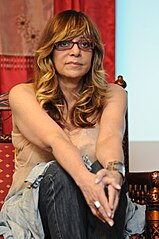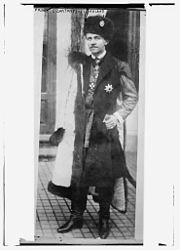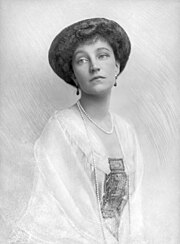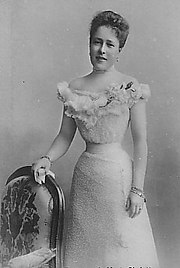Design
Design
Personality
Chart Properties
Your Cross represents the specific theme of your life. This cross embodies your unique potential & the lessons you're here to learn, providing a roadmap to fulfilling your life purpose.
We use the UTC birth time and date to do the calculations required to generate your Human Design chart.
Buy Tokens
Pay as you use, no expiry and no subscription required.Jetty Cantor's Biography
Dutch Jewish actress, violinist and singer.
Her mother Sophia de Jong (5 February 1879, Harderwijk – 21 September 1942, Auschwitz) was an actress. She played in Germany for the radio, singing songs Willy Rosen wrote for her. Her father Meijer Frank (22 May 1880, Amsterdam – 21 September 1942, Auschwitz) was a pianist and orchestra leader.
She grew up with music and cabaret. Two brothers became professional musicians, like her father. She wanted to become an actress, like her mother, but her father insisted that she first went to the music academy. And so she did. Later in Auschwitz, without anything, her violin would save her life.
At age 16 she debuted as a violinist in her fathers Ensemble. She learned all kinds of music, including film music to cheer up the silent films. She married on 9 April 1924 in Amsterdam Mozes Maurice Cantor (28 September 1902, Amsterdam ? 4 August 1954, Hilversum). They got a son Jacob “Jaap” Cantor (12 July 1926, Amsterdam – 2007). In the thirties, she had first a Trio, later the Jetty Cantor Ensemble, that played weekly for the radio of Hilversum. She also worked with Louis Davids in the Kurhaus in Scheveningen. According to the historical newspapers her last performance was given on Monday 29 April 1940 at 10h35 AM. On 10 May 1940 the Germans attacked the Netherlands. Already on 21 May 1940 she was fired by AVRO broadcasting director Willem Vogt, because of her Jewish background.
As the Berufverbote for Jews and opponents of the Nazi regime were not yet implemented, she could still organise private performances in 1941. But the next year her parents were deported to the East and gassed in Auschwitz. Early October 1942, she and her husband were arrested. After a short stay in the ghetto of Amsterdam, they were sent to Camp Westerbork. Here she met many Dutch and exiled German Jewish artists that were selected to play in the Westerbork cabaret.
Initially they had some protected status, having some useful function in the game the Nazi’s played. Their role in the game was to entertain the Germans and distract the imprisoned Jews with cabaret. So they played for their life.
The cabaret group “Gruppe Bhne” of Max Ehrlich made cabaret between September 1943 and Augustus 1944 in Camp Westerbork. Jetty and Mozes Cantor were part of it, but also famous German artists like Willy Rosen(baum) (18 July 1894, Magdeburg), Mara Rosen, Erich Ziegler, Otto Aurich, Liesl Frank and Camilla Spira.
August 1944 she was transported to “model ghetto” Theresienstadt. If had been visited by the Red cross several months before. Here she met her sister Lea Rimini- Frank (3 November 1910, Amsterdam – 25 October 1944, Auschwitz) and her daughters Elisabeth (1934-1942) and Sophia (1936-1942). Later she was transported with train no. 1371 (01. 10. 1944, Terez¡n -> Auschwitz) to Auschwitz. Her sister and nieces were killed on 25 October 1942. Jetty Cantor was given some time, as she had a violin. She was recruited for the succeeder of the Women’s Orchestra of Auschwitz under the Russian conductor and pianist Sonia Winogradowa, that would play the violin on the way to the gas chambers. But she could not play, as she knew the fate of her family. She then was sent to the Death barracks.
She was transported to Bergen-Belsen, most likely around Jan 17, 1945, when the Auschwitz Concentration Camp was dismantled and the death marches began. The Russians arrived Jan 27, 1945 in Auschwitz concentration camp. She was able to jump out of a train (cattle wagon) near to the Bohemian beer city Budweis (?esk‚ Bud?jovice), according her biographer Maarten Hell. After the last Germans left Budweis, around 4 May 1945, she was admitted to the Budweis Hospital. After some recovery time, she travelled with crutches back to the Netherlands.
She starred at the first postwar ?Liberation? Concertgebouw orkest July 1945. The first post war Jetty Cantor Ensemble performance for the Dutch radio, was held on 21 September 1945 from 5h00- 5h30 PM (Autumn programme, announced September 20 in the newspapers). She was active for years in the music business. She was reluctant to receive honours, but accepted being Knighted as “Ridder in de Orde van Oranje Nassau” at the 70th anniversary of Queen Juliana (27 April 1979).
She died in Hilversum, 23 April 1992.
Link to German Wikipedia
Link to Astrodienst forum archive
Jetty Cantor
Your Cross represents the specific theme of your life. This cross embodies your unique potential & the lessons you're here to learn, providing a roadmap to fulfilling your life purpose.
We use the UTC birth time and date to do the calculations required to generate your Human Design chart.


Del Rice
2/4 Sacral GeneratorGustav Heiberg Simonsen
5/1 Sacral Generator

Glória Perez
4/6 Sacral Manifesting Generator

Adam Ludwik Czartoryski
6/3 Sacral Manifesting Generator

Archduchess of Austria Elisabeth Marie
4 / 1 Emotional - Solar Plexus Generator





